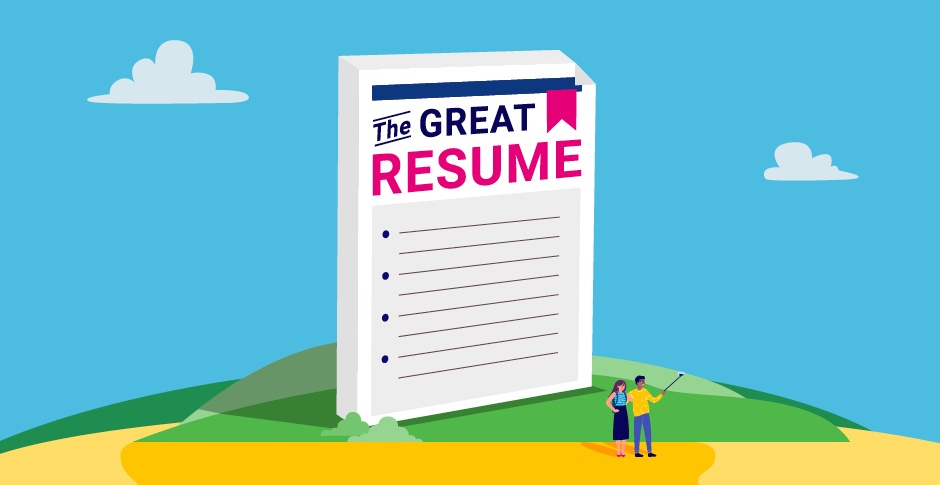Getting your resumé wording just right can feel like a real challenge. How do you write about what you did in your previous jobs, or your education?
Some words can be really powerful in a resumé, and selecting them can help you connect with employers. It can make them feel confident you understand their business and are an ideal person for the job. Other words might be popular in resumés, but don’t really describe you or your skills in a way that’s meaningful.
Here’s a look at the words to think twice about using in your resumé, and what to write instead.
Words to avoid using in your resumé
Buzzwords are really popular terms that have become part of resumé language, but can actually come across as generic in your resumé.
Simon Bennett, Managing Director and Principal Consultant at Glide Outplacement and Career Coaching recommends avoiding popular buzzwords in your resumé, including:
- Loyal
- Energetic
- Punctual
- Motivated
- Enthusiastic
- Team player
- Client-focussed
- A people person
“These words are frequently overused and rarely backed up with concrete examples,” Bennett says. “Yes, almost every employer will be looking for these traits, but anyone can say they possess them.”
The problem is not with the words themselves, but how they’re used, Bennett says. “People often include the words thinking they are enough to make them sound competent,” he says. “But employers want to see how you embody these traits.”
So, it’s not enough to simply include buzzwords that say you’re enthusiastic or motivated, for example. To really convey your skills to employers, it’s better to use words that demonstrate how you are motivated and enthusiastic.
What to write in your resumé instead
It’s important to choose words and phrases that actually show that you have a particular quality. “For example, what have you actually done at work that proves you are a team player?” Bennett asks.
“Without supporting evidence to show that you have those characteristics, buzzwords are merely words which many other people also use and therefore have little value,” says Julian Williamson, director and founder of The Jobseeker Agency.
If you want to show that you’re a loyal employee, you could demonstrate it by stating how long you stayed at a particular organisation. Or, if you want to prove that you’re client-focussed, you could give examples of how you went above and beyond what was expected by clients in a certain role.
Try using powerful, action verbs and pair them with examples of your work to help demonstrate your skills. For example:
- Developed (e.g. “I developed a new training manual”)
- Achieved (e.g. “I achieved all my sales targets”)
- Managed (e.g. “I managed a team of three”)
- Initiated (e.g. “I initiated a health and safety program”)
“These types of action verbs capture attention and excite the reader,” says Bennett. “These words help to highlight your skills and abilities and demonstrate the success you have achieved in previous jobs.”
Replace buzzwords with keywords
Many companies now use Applicant Tracking Systems (ATS) to scan and sort resumés, Williamson says. “This software will search your resumé for keywords associated with the job. Therefore, it’s really important to mirror the keywords that are contained within the job description.”
Refer back to the job ad, and pick out any specialist skills, action words and other important terms you can see. Then, include these words throughout your resumé where they’re relevant to you.
According to Williamson, an organisation is more likely to search for a specialist skill they desire as opposed to searching for candidates who have described themselves as ‘enthusiastic’ or ‘hardworking’. “It is far better to use facts and figures where possible, provide evidence of where you have used skills or had achievements so the reader can gain a comprehensive overview of your previous roles and responsibilities,” says Williamson. “This will add far more value than sprinkling overused buzzwords in your resumé.”
Resumés are all about making a great impression to employers and summarising your skills and experience in a way that’s relevant to the job. It can be tempting to include descriptive words you think employers want to read, such as ‘team player’ or ‘good communicator’. But choosing words to actually show you have the skills and qualities employers are looking for will make an even better impression, and reinforce what you can bring to the role.



